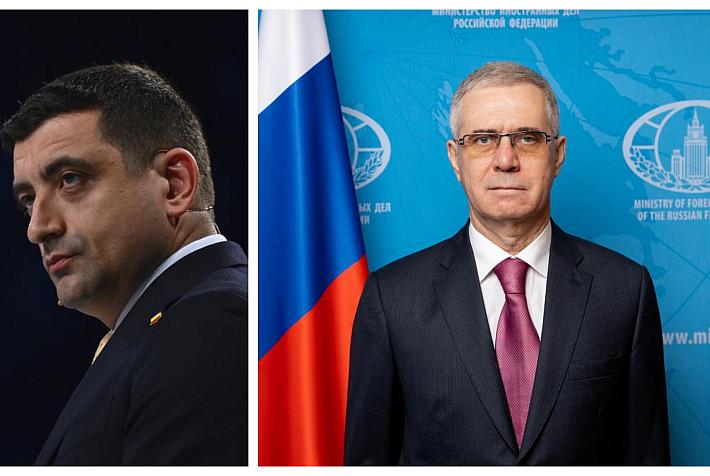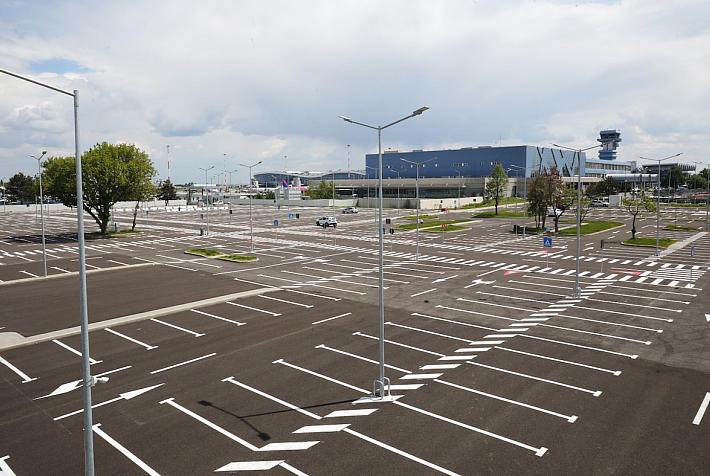Discover Romania: Local traditions and customs that might seem strange to foreigners

Romanians are very connected to their roots and traditions, so for most of them is very important to respect a vast number of traditions and customs.
Romanians have traditions for every significant event in their life, such as baptisms and weddings, as well as for Christmas, Easter or any other important religious holiday. Some of them might seem strange to foreigners.
The wedding is a very important life event in Romania, which includes some traditions that might seem strange to newcomers. Some couples hire a wedding filmer for their wedding.
One of them is kidnapping the bride. At some point during the party organized after the religious ceremony, a group of guests, usually men, kidnap the bride. The ransom: a few bottles of whiskey, vodka or anything else the kidnappers prefer. They usually negotiate the pay with the groom over the phone. Once the ransom is paid (in some areas by the groom, in others, by the Godfather, depending on whether the kidnapping takes place before or after midnight), the bride returns safely to her new husband and the party continues. Nothing dangerous is involved - most brides want to be kidnapped during their wedding; it’s just another way of spicing things up a bit.
Another wedding tradition in Romania is replacing the bride’s wedding veil with a scarf. At a given point of the event, the godmother takes the veil over the bride’s head and replaces it with a scarf. The change symbolizes the bride’s transformation from a girl into a married woman.
Don't count on getting decent sleep on the night you're attending a Romanian wedding - most wedding parties take all night and serve food and beverage throughout the whole night- with cake served at about 4-5 AM! You might be perceived as a party crasher if you leave early, or the young couple may think you don't like their wedding (or worse, them!), if you leave at midnight! So better prepare solid excuses to keep up with your regular sleep routine.
After the ceremony, most newlyweds take pictures next to symbolic monuments in their city, such as the Arch of Triumph in Bucharest or the Kissing Gate in Targu Jiu - among the most popular. So usually on Saturdays, you may see several brides waiting to get a picture or two next to the Arch of Triumph in Bucharest.
There are also several superstitions connected to this day. For example, rain on the wedding day means good luck in marriage, wealth. If the bride cries at her wedding, it means she will be happy in her marriage. It is a sign of bad luck to see another bride on the wedding day. So brides and their families go to great lengths to avoid seeing each other when signing the marriage certificates at the City Hall or when waiting for their queue at the church.
The baptism is an another significant event in the lives of Romanian families. A baptism party can gather hundreds of guests and, just like weddings, can last until the morning. The baby is usually only briefly present.
During the ceremony, the Godparents play the most important role - not the parents. The Godparents bring and hold the baby in Church, dry him off and cloth him after he is baptised in water (the Orthodox way; most Romanians are Orthodox). Parents usually sit back and watch and maybe take some pictures. The symbol here is that Godparents take on the role of spiritual guides for the baby - like a second set of parents.
One year after the baptism, there is another important tradition practiced in most parts of Romania: cutting the baby’s hair for the first time (in Romanian, the expression is 'a lua motul' - roughly translated as cutting the forelock). On that day, the parents dress up the baby and prepare a party for close relatives and friends.
During this family event, the godmother or godfather cuts a piece of the baby's hair. After that, a big plate with several items on it is placed in front of the baby. Items vary from money to books, pens, scissors, car keys, mobile phones and jewelry. The baby will choose three items from the plate, each with a different meaning. If, for example, the baby chooses money, this symbolizes richness; while the baby goes for the book or the pen, it means he will be smart. Car keys symbolize a passion for cars, and so on. You get the idea.
For many Romanians, a very important social moment is when receiving guests into their homes. Most Romanian will always make sure the house is clean before guests arrive. They clean the house with white sage to make the spiritual world friendly. They welcome guests with a firm handshake and, most of the time, with kisses on both cheeks. However, the kissing part is usually done when you are friends, probably when you leave, or when you meet someone a second time. Be prepared for the moment when somebody you know very little to none reaches out to kiss you on the cheeks.
In some cases, men will also kiss a woman’s hand, as some Romanian men still consider this chivalry gesture important .
Then, in some parts, mostly in the rural areas, Romanians will offer you a glass of palinca or tuica (a traditional fruit brandy) and then invite you to eat. Be it for lunch or a dinner (or anywhere in between), Romanians will have prepared a real feast for guests, with multiple courses. So don’t fill up with bread and soup at the beginning! The Romanian host will want you to try each course and if it’s possible, eat everything you are offered. The best pay for the host is for guests to praise the food and ask for more!
In Romania, if the host offers you something, you shouldn’t refuse. For example, if the host offers you a piece of cake or a glass of wine, don’t say no, as the host will feel offended.
There many other traditions in Romania, from welcoming the spring with the symbolic martisor (trinket in approximate English) to painting eggs for Easter and slaughtering the pig for Christmas.
As Romanians are usually religious people, you might also see people making the sign of the cross while passing by a church. This might be a strange habit for a foreigner, but it is Romanians’ way of showing their faith in God.
If you know any other Romanian traditions, customs or habits, drop a line in the comment box below.
Irina Popescu, irina.popescu@romania-insider.com
(photo source: freeimages.com)











